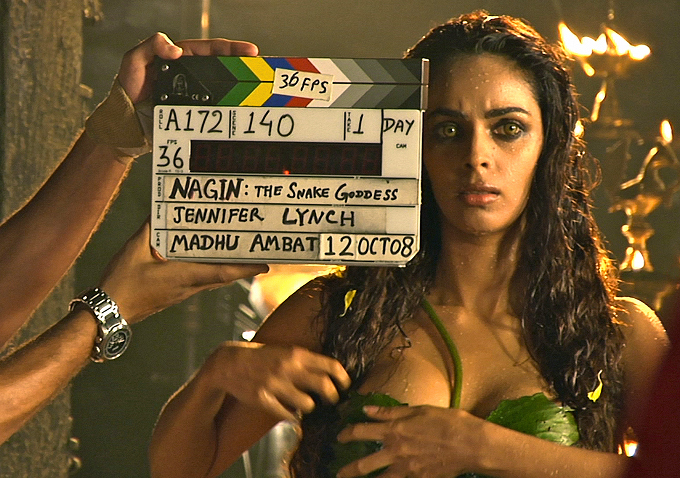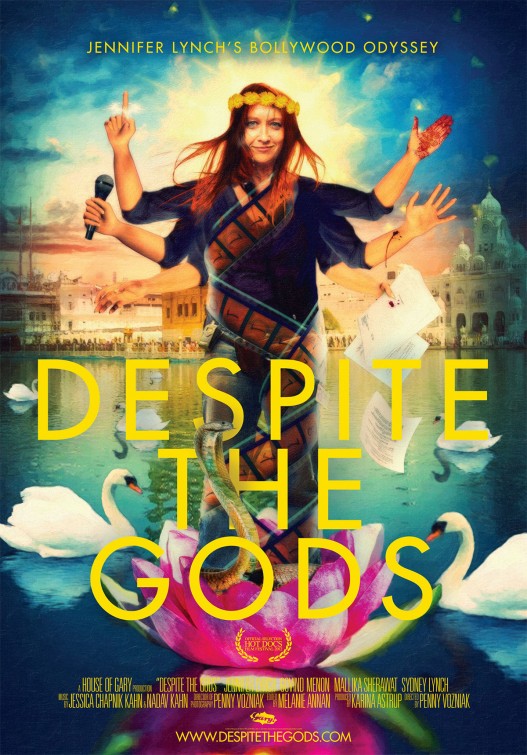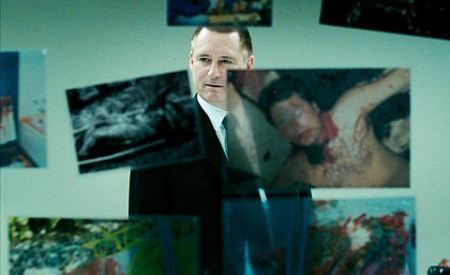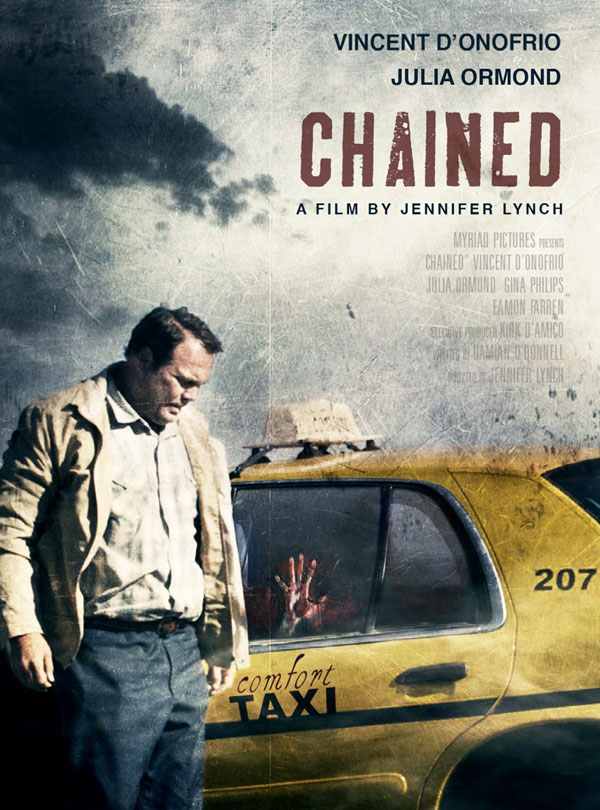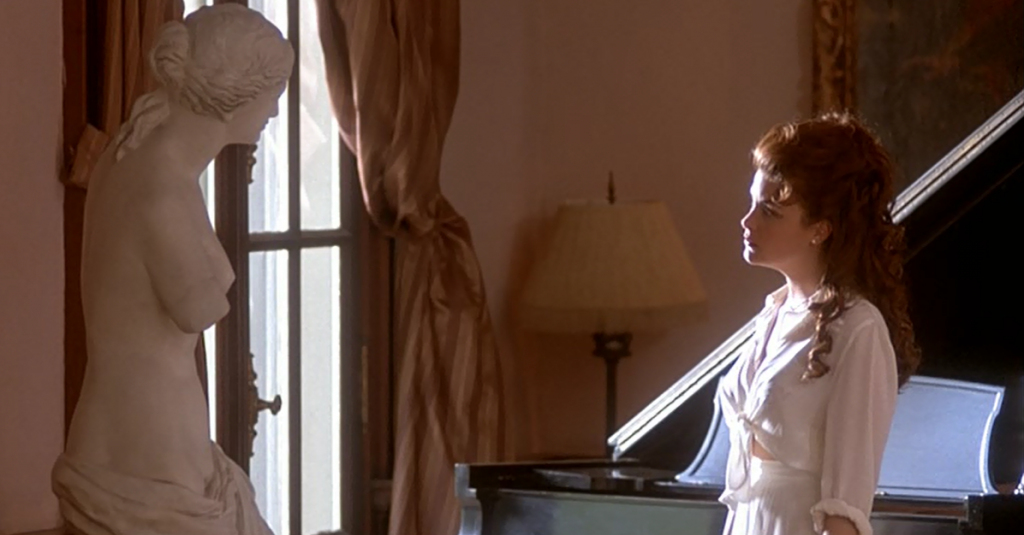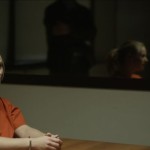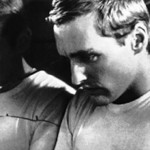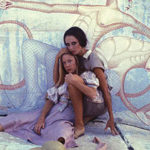“THEY CALL THEM WITNESSES BECAUSE THEY’VE SEEN THINGS”
“THEY CALL THEM WITNESSES BECAUSE THEY’VE SEEN THINGS”
An interview with Jennifer Chambers Lynch of Chained and Despite the Gods
Kier-La Janisse
 Like most children of visionary artists, Jennifer Lynch took some flack when get viagra without prescription she first started edging onto her own path of creative expression. But Lynch’s vision is entirely her own, as showstoppers like 2008’s Surveillance will attest. Its intricate plotting of a prairie killing spree told from multiple conflicting perspectives concretized Lynch’s abilities not only as a visual artist but as a wholly engaging storyteller. Still, while genre audiences have embraced Lynch from the outset, ‘straight’ critics have had a hard time reconciling with her talent as an individual, preferring to lazily compare her work to that of her father. Her debut feature Boxing Helena was met with scathing reviews in 1993, but from where I stand, there was no other film that came close in originality that year. A Stockholm mexican viagra Syndrome amputee romance? I was sold on that premise instantly, and the film delivered. It was a remarkable study of insular co-dependence that managed to be simultaneously perverse, shocking and genuinely romantic. She had marked out her own territory in the industry levitra mit rezept 10 mg preise with gusto.
Like most children of visionary artists, Jennifer Lynch took some flack when get viagra without prescription she first started edging onto her own path of creative expression. But Lynch’s vision is entirely her own, as showstoppers like 2008’s Surveillance will attest. Its intricate plotting of a prairie killing spree told from multiple conflicting perspectives concretized Lynch’s abilities not only as a visual artist but as a wholly engaging storyteller. Still, while genre audiences have embraced Lynch from the outset, ‘straight’ critics have had a hard time reconciling with her talent as an individual, preferring to lazily compare her work to that of her father. Her debut feature Boxing Helena was met with scathing reviews in 1993, but from where I stand, there was no other film that came close in originality that year. A Stockholm mexican viagra Syndrome amputee romance? I was sold on that premise instantly, and the film delivered. It was a remarkable study of insular co-dependence that managed to be simultaneously perverse, shocking and genuinely romantic. She had marked out her own territory in the industry levitra mit rezept 10 mg preise with gusto.
But that wasn’t my first introduction to Jennifer Lynch. I first became aware of her through voraciously reading The Secret Diary of Laura Palmer, a brilliant tie-in that she wrote to accompany her father’s television show with Mark Frost, one that explored the dark heart of Twin Peaks’ troubled teen and operated as both a convincing confessional and a guilty pleasure. But in reading the book, one got the sense of glimpsing a bit into Jennifer Lynch’s own sinister psyche, and Boxing Helena would confirm those suspicions.
Spectacular Optical spoke to Jennifer Lynch about Penny Vozniak’s Despite the Gods – which depicts Lynch’s troubled experiences on the set of 2009’s Hisss – and her new serial killer thriller Chained starring Vincent D’Onofrio, both of which are premiering at Fantasia this weekend.
– Was Despite the Gods always meant to be a feature length doc, or were they originally filming as a means of behind the scenes documentation that would be used for EPK purposes?
Originally, the director Penny Vosniak was shooting for an EPK. It was her clever eye that allowed her to see there might be more of a story in staying for the entirety of generico cialis the shoot. It was a happy accident that a film was born from the experience.
– Was it hard for you to watch the finished film?
I was both frightened and excited. My daughter felt the same. Ultimately, I could not be more proud to be a part of the film. My insecurities and self-deprecation aside, it is clear to me that Penny made the film she wanted to make. That is what all filmmakers should be allowed to do.
– How did you know producer Govind Menon? Hisss is one of his only credits as producer – did yoou already know him in some capacity?
I did not know Govind previous to working with him.
– The script is credited to you, but in Despite the Gods, you say that they were already planning the film and contacted you partially because they wanted an American director. When you were brought onto the film, what were you told were the areas where you would have freedom vs compromises you could expect to make?
After the producers had seen Surveillance, they asked to meet with me. I asked to read the script, and they said they needed me to write it. It was a crazy and magical story. A legend I could not say no to. I knew there was an adventure in the experience: boy was I right. I was told I would have many freedoms in interpretation and creation. Ultimately I believe there was no true malice in the bad moments and outcomes: or maybe that’s what I choose to think so that I don’t lose my faith in people.
– Did the critical success of Surveillance during the shoot of Hisss (you are seen getting an email with a good review during pre-production on Hisss) seem to have any impact on your state of mind or the way people treated you on set, in terms of being a female director in India?
I think that any good review or compliment makes people feel good. It makes us feel heard. Understood. approved. Certainly, getting good news made me better able to rally the troops when cyclones and strikes hit the production. My experience as a woman in India is the only experience I have had. I cannot say it would be better or worse depending on my other successes or failures, or how it compares to being male in India. I can say that the film and television business is less a “boys club” nowadays than it has been in the past, surely.
Most important to me, is that I continue being myself, no matter where in the world I am, or in what situation. I am a story teller. Always learning. Always working. I don’t think of myself as “a female filmmaker”. I certainly don’t identify other directors as “male directors”; a story teller is a story teller. The best ones can express both the feminine and masculine in all of us.
– One of my favourite lines in Surveillance is when Bull Pullman says “They call them witnesses because they’ve seen things.” But being a witness implies that there is a story that is not your own, that you are seeing it from the outside. Bill Pullman is monitoring them because “He has to know what they’ve seen” so there are multiple layers of witnessing going on here. But we, the audience, sees things that they’re not telling. In what ways did you want to play with the blurred lines between ‘witnessing’ and reality and the complicity inherent in ‘witnessing’?
I am fascinated by the human need and ability to tailor events to our own needs. I don’t think lying is inherent in people, but perception can often differ so much from person to person, that some might say one’s version is a lie. It thrills me.
– When a child witnesses something, people tend to not believe them, but you and your antagonists in Surveillance give a lot of credence to the child’s point of view – hers is the most reliable retelling of events – and she’s ‘rewarded’ for being such a good witness. Why was it important to you that the child be given the film’s most reliable voice?
A child’s eyes are the most clear. At least in my mind. The child is not busy thinking, “will I get the job? do they like me”, “am I thin enough, smart enough, sexy enough?” without all of that learned self-judgement, they are able to see more clearly. Their view of the world is clean. People tend to ignore the intelligence and clarity children have. For me, they are some of the wisest among us. Along with wisdom comes a great vulnerability. Eyes and ears always open– they are taking all of us in. The good and the bad.
In addition to Despite The Gods, your newest film Chained is also screening at Fantasia (there are no advance screeners so I haven’t been able to watch it), but again, as with Surveillance, you have a child at the center of the story, watching horrible things happen – although this time, they are more overtly complicit. With many of your films do you think you are trying to explore the different ways we can negotiate abusive situations, especially from a young age?
I am a firm believer that child abuse and or neglect leads to great damage. We are building monsters. I am investigating the damage done to children and the repercussive effects of that behavior. I want to entertain sure, but also to create a dialogue about abuse and why it is such a cycle. There is no excuse for bad behavior or violent behavior… but there is an explanation, if we look for it.
There are many true-crime stories in which a serial killer tries to recruit a protégé , often a younger family member – why do you think they want that? Are they looking for emotional reinforcement? The power to corrupt another person? Or just company?
I can only speak about the characters in Chained… ultimately, there is a combination of a need for companionship, a need to recreate their own childhood, and to somehow exorcise the demons moving like breath inside them.
This is just a practical question, but you again returned to Saskatchewan to shoot, and employed some of the same local actors (as well as re-casting Julia Ormond). What was the appeal of shooting in Saskatchewan again?
I adore Saskatchewan. The worst news I have heard since losing Hisss to the producers, was that Saskatchewan’s tax credit was cut. Some of the finest crews and human beings make films and live there. It is one of the most creative environments there is, and I hope the tax credit comes back asap. It was a terrible mistake to lose it.
Tell me about the process of writing The Secret Diary of Laura Palmer – when this was written were you exorcising some adolescent anxiety of your own?
When i was about 12, I told my father one day that I wished I could find another girls diary. Pick it up from a gutter, tuck it under my jacket and run home to read it. I desperately wanted to know if other girl’s longed for, feared and considered the same things I did. Years later, he called me, recounted the story and asked if i would write Laura’s diary. I jumped at the chance.
In hindsight why do you think people were so venomous in their responses to Boxing Helena? Do you know of any cases where these opinions have changed over time?( I remember reading some of the reviews at the time and being shocked, because I LOVED the film, I loved the premise, and it would never have occurred to me that it would be received that way.)
I think that along with the drama of the trial[i] and the seemingly violent nature of the synopsis, people felt I was condoning the harming of women, when nothing could have been further from the truth. maybe the film was before its time. It has been really wonderful to have people tell me lately how much they love the film. It means the world to me and to all those who worked so hard to make it.
What can you tell me about your upcoming projects A Fall from Grace and The Monster Next Door?
A Fall from Grace will star Tim Roth and soon to be announced other greats. It is another romantic comedy from Jen lynch… not. Yes, it involves a detective and a serial killer, but it is about so, so, so much more. Again, and examination of the human monster. I am super excited about it.
The monster next door is a horror/comedy. One of the funniest, strongest scripts I have ever read. written by Jim Robbins and will be filled with incredible actors as well as fun as hell cameos. Special effects to be done by Bob Kurtzman.
——————
DESPITE THE GODS has its Quebec Premiere on August 4th at 5:20pm and screens again on Aug 6th at 3:25pm, both in the Salle JA de Seve, with Jennifer Lynch and director Penny Vozniak in person. More info on the film page HERE.
CHAINED has its World Premiere on August 5th at 7:10pmin the Hall Theatre with Jennifer Lynch and co-writer Damian O’Donnell in person. More info on the film page HERE.
[i] Referring to the successful lawsuit against actress Kim Basinger, who bailed out of the lead role after 18 months.

 August 4, 2012
August 4, 2012  No Comments
No Comments
